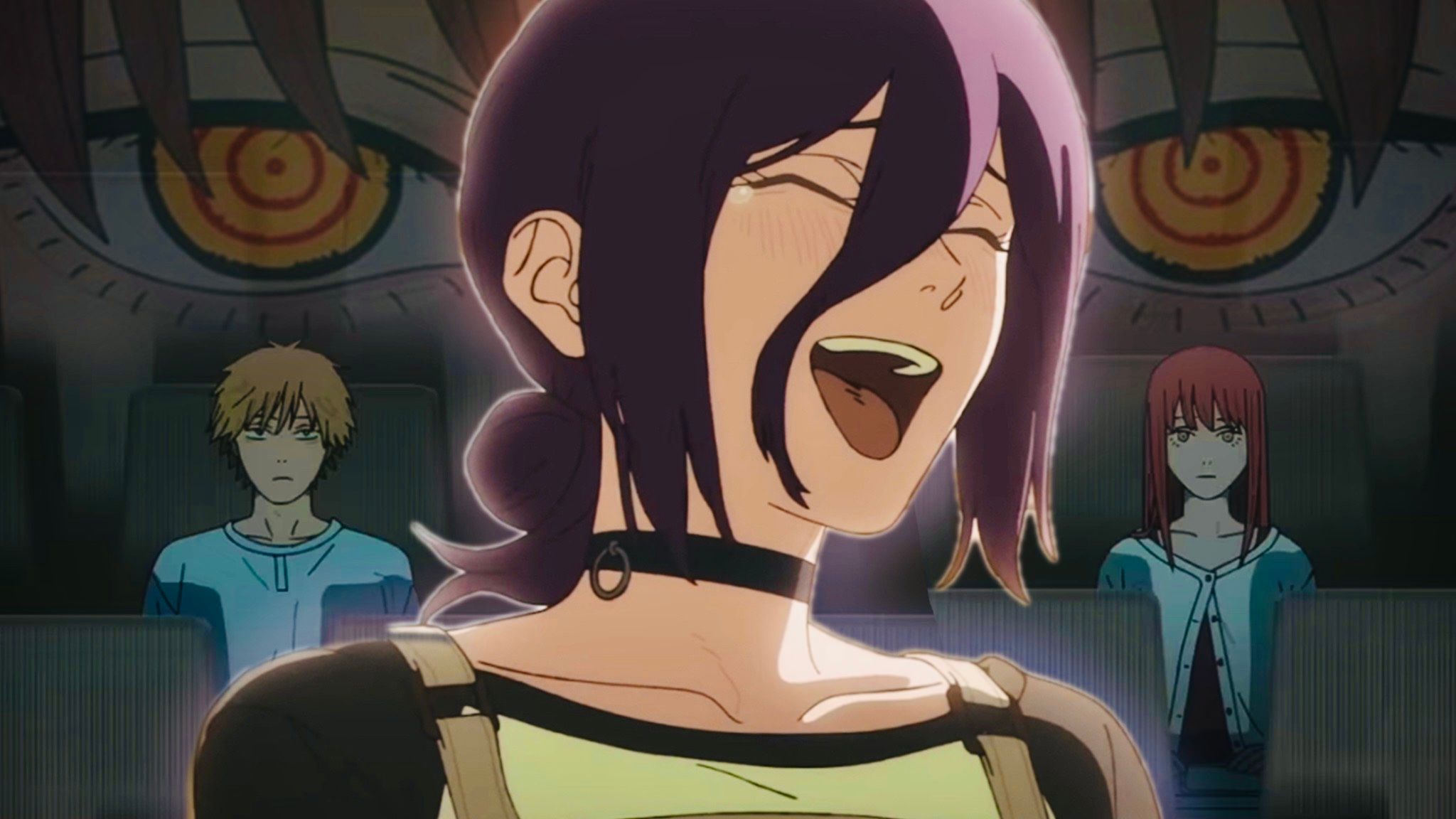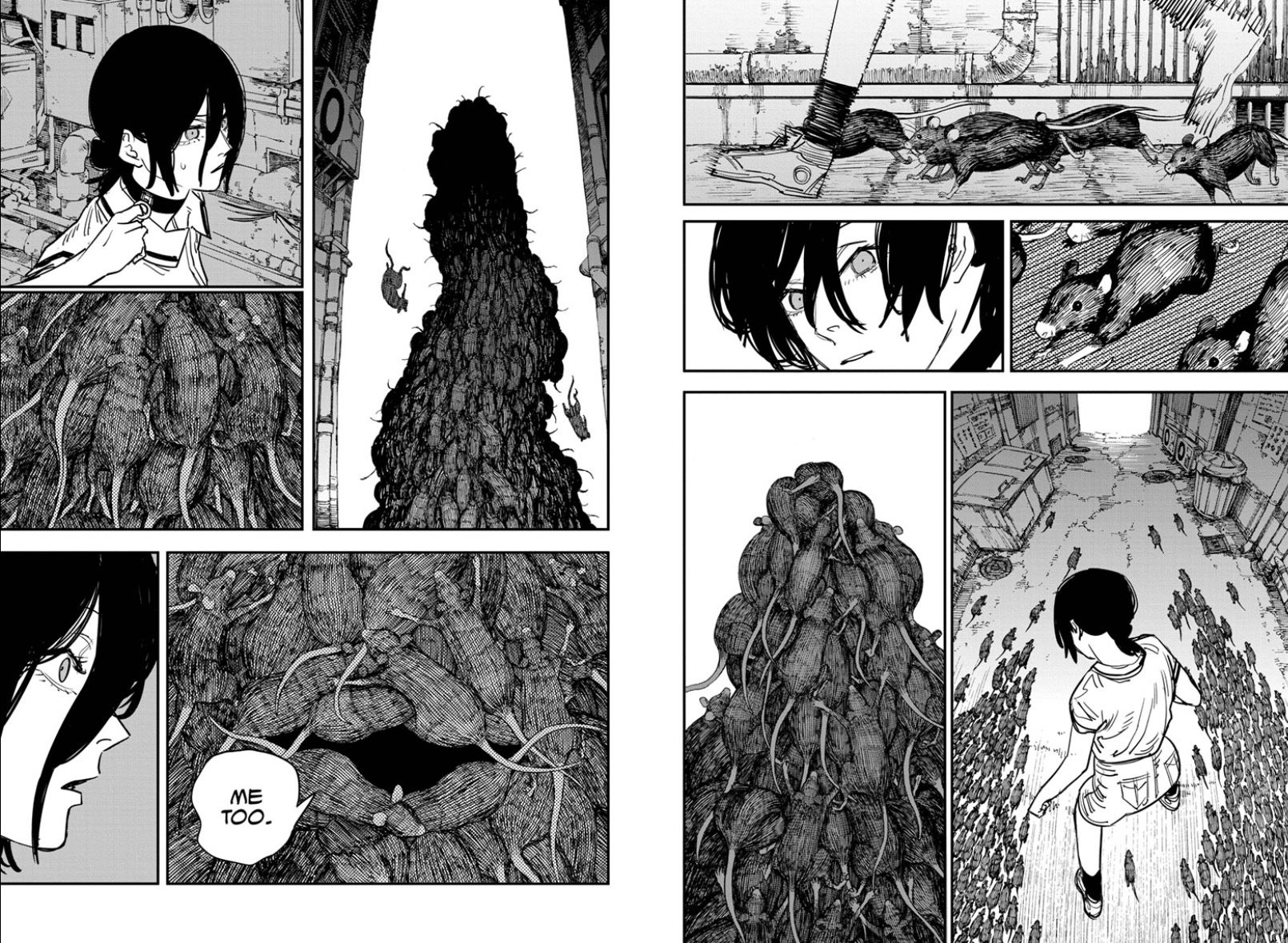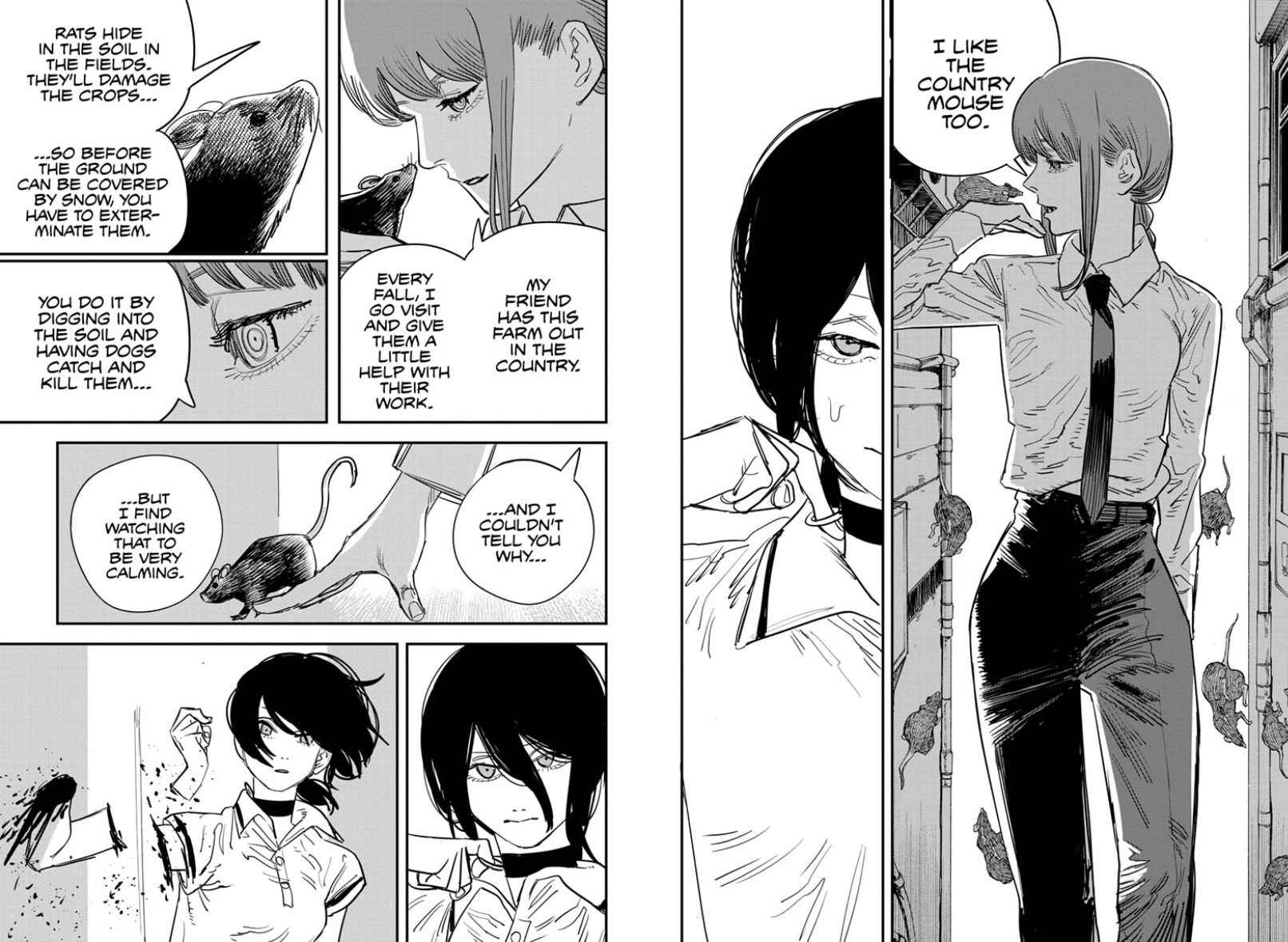
Tatsuki Fujimoto’s first full-length film, Chainsaw Man – The Movie: Reze Arc, uses symbolism and hints at future events even more extensively than the original manga. However, the film’s most impactful symbol – and one key to understanding the manga’s overall message in both parts – centers around a pair of mice.
During a date at school, Reze asks Denji a thought-provoking question: “Which would you choose – the Town Mouse or the Country Mouse?” This question, originally from chapter 42 of the Chainsaw Man manga, is recreated almost exactly in the movie. It reappears at a crucial moment during the climax, and for good reason. The story of the Town Mouse and Country Mouse has a deeper meaning within Chainsaw Man, adding complexity to the plot and characters in ways that are often missed.
Reze’s Town Mouse and Country Mouse Quote Has Deeper Meaning in Chainsaw Man
Reze asks Denji a seemingly simple question about the town mouse and the city mouse, but it carries a hidden meaning. The question alludes to a classic story with a clear lesson, as Angel explains to Aki that it’s one of Aesop’s Fables. The more you think about it, the more complex it becomes.
Angel explains the story to Aki, pointing out that the country mouse is safe but misses out on tasty food, while the town mouse enjoys delicious meals but faces more danger from people and cats. Angel’s understanding of the story is correct, although it’s a rather simple explanation. Actually, the fable of the Town Mouse and Country Mouse is a longer story with a clear lesson to be learned.
The story begins with the Town Mouse visiting the Country Mouse, but she finds the simple country food difficult to enjoy. Later, the Country Mouse is invited to the Town Mouse’s home in the city, where there’s a feast of delicious food. Unfortunately, before they can eat much, a cat appears and scares them both, ruining their meal.
The story concludes with a simple moral: it’s better to be safe and have little than to live with abundance and constant fear. While the characters, Angel and Reze, present this moral – echoing a classic Aesop fable – to Aki and Denji, they don’t just accept it. Instead, they challenge its meaning and implications.
The Town Mouse and Country Mouse Allegory Highlights the Depth of Chainsaw Man’s Characters
The story uses the classic tale of the town mouse and country mouse to emphasize what’s most important to each character. Angel identifies with the country mouse, showing he values a simple, safe life. In contrast, Denji is drawn to the town mouse, revealing his desire for excitement and enjoyment.
Denji is a lot like the country mouse from the famous fable. He grew up in extreme poverty, longing for even a little bit of comfort and enjoyment. But unlike the fable’s mouse, who realized city life wasn’t worth the risks, Denji has experienced it and still prefers it to his old, difficult life. This highlights a key idea in Chainsaw Man: what’s considered good or bad often depends on individual experience.
Besides Denji, Reze’s answer is one of the most revealing so far. When she chooses the Country Mouse, it shows that despite encouraging Denji to be adventurous, she actually values peace and security over taking risks. This is especially poignant considering her own dangerous lifestyle and complicated past.
Reze was put in a difficult position, likely because the Russian government threatened her or someone she cared about. She feels trapped, mainly due to the fear and emotional scars from past experiments. For Reze, it’s more frightening to defy her orders and follow her own desires than to risk her life. The anime-only “Reze Arc” highlights this struggle with a recurring image of a plane flying overhead. This symbolizes Reze’s internal conflict – her desire for freedom is constantly overshadowed by her fear, much like the anxiousness of a Country Mouse.
The story comes full circle when Makima intervenes to stop Reze from reaching Denji. Makima tells Reze she agrees with her preference for the Country Mouse, but her reasons are darkly twisted and have nothing to do with the original meaning of the folktale.
Makima sees herself as completely separate from humanity, which explains why she doesn’t understand the moral of the story about the Country Mouse and Town Mouse. This is the first clear sign that, unlike Denji and Reze who still possess some human qualities despite being Devil Hybrids, Makima is a Devil through and through. Interestingly, Angel is also a Devil, but he can relate to the story’s message. This shows that Devils are capable of feeling emotions and understanding others – it’s Makima’s warped worldview, not her nature as a Devil, that prevents her from connecting with it.
Makima’s True Goal is Foreshadowed By The Town Mouse and Country Mouse Metaphor
The story uses the classic ‘town mouse vs. country mouse’ idea to highlight the characters’ personalities, but it goes much deeper than that. This contrast actually forms the central argument of the first part of the Chainsaw Man manga. Ultimately, the author, Fujimoto, takes this concept to its extreme with the character Makima, asking what would happen if everyone was forced to live by the strict morals of the ‘country mouse’.
Makima promises a world of perfect peace and safety, like the quiet life Reze describes. But Denji actually prefers the excitement and unpredictability of the city. He points this out to Makima in Chapter 93, asking if there would still be “bad movies” in her ideal world. Makima replies that she believes the world would be improved by eliminating them entirely.
The connection between this scene and the story’s ending is significant. When Makima tells Reze she’d prefer a simple, controlled life, it symbolizes her need to be in charge. While Denji finds value in enduring hardship for moments of happiness, Makima doesn’t see it that way. It’s ironic that she’s the one who first introduces this idea to Denji during the Reze Arc.


In the beginning of the Reze Arc, around chapter 39 of Chainsaw Man, Makima takes Denji to the movies. While watching several films, Denji wonders if he even gets movies, as none of them seem good to him. Makima tells him she usually only enjoys one out of ten movies, but that even a single good film can be life-changing.
Makima’s promise of a future without bad movies feels hypocritical, revealing to Denji that her feelings for him were never sincere. Despite this realization, Denji still cherishes their shared experiences and the lesson about enduring ’10 bad movies’ deeply impacted him.
The story sets up a conflict between two ways of life: the simple, traditional values presented in the original Aesop fable and the more self-serving values of the character Denji. This contrast is the central idea of the first part of the story, challenging the fable’s seemingly clear moral lesson. However, the story goes deeper than that. As Denji adapts to his comfortable new life – mirroring the “town mouse” in the fable – the world around him increasingly reflects the dangerous consequences of that lifestyle. While Denji finds a kind of freedom under the control of the War Devil, it’s a freedom built on constant violence.
I’ve been thinking a lot about Chainsaw Man and it’s hitting me that Fujimoto might be deliberately setting up a moral contrast between the first and second parts. Part 1 really focuses on the ‘Country Mouse’ type of morality, while Part 2 is all about the ‘Town Mouse’. It seems like Denji is ultimately going to learn that neither approach is inherently ‘right’ or ‘wrong’ – it all depends on how extreme things get. Trying to force either lifestyle as the only way to a better life just leads to disaster. Honestly, I think Fujimoto is aiming for something even deeper – maybe Denji can transcend both, or maybe reject them entirely. That would be a way more powerful story than the original fable!
Read More
- Золото прогноз
- Noventiq акции прогноз. Цена акций SFTL
- Доллар обгонит рубль? Эксперты раскрыли неожиданный сценарий
- Красногорский завод им. С.А. Зверева акции прогноз. Цена акций KZIZ
- ТНС энерго Воронеж акции прогноз. Цена акций VRSB
- Эн+ акции прогноз. Цена акций ENPG
- IVA Technologies акции прогноз. Цена акций IVAT
- James Gunn Clapped Back At A Fan Who Criticized Krypto The Dog’s Name In Superman (And Makes A Valid Point)
- Grand Blue Dreaming Season 2 Episode 8 Release Date, Time, Where to Watch
- The Fragrant Flower Blooms with Dignity Season 1 Episode 10 Release Date, Time, Where to Watch
2025-10-24 16:42